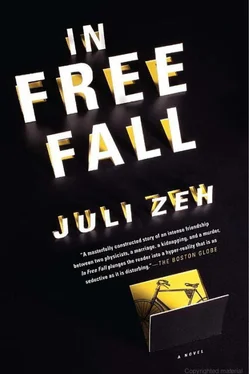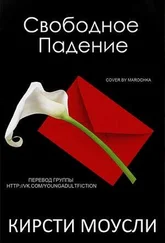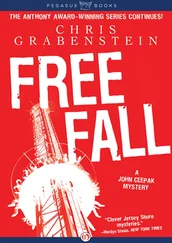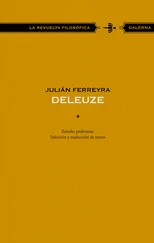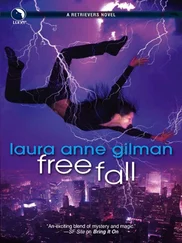A whining noise drills into his ears. Here are the mosquitoes to give the witness statement that Schilf still needs in order to be certain of what he thinks. Seven mosquitoes land on his right forearm and sting immediately. The detective jumps up and beats at them. The survivors launch a new attack without hesitation, and reinforcements come from invisible colleagues; they tickle his neck and sting his arms and hands over and over again. Schilf rolls his shirtsleeves down quickly, shakes his trouser legs, and wipes his face. When he has calmed himself, he notices a small man standing some distance away as if rooted in the ferns, watching him perform the dance of St. Vitus. When their eyes meet, the paunchy man starts moving toward him.
“Miserable bloodsuckers, aren’t they?”
The butterfly collector approaches, raising a didactic finger.
“They’re the rats among the hexapods,” he says. “Insects with six feet,” he adds, when Schilf does not respond.
The detective looks at the backs of his hands, where the first bites are swelling. He wonders what would happen if he were to scratch them with the blade of a knife until they were bloody, and then walk into the office of the leading public prosecutor with his arms outstretched proudly, proclaiming, “Look, here’s the decisive piece of evidence!” He begins to laugh quietly. It would surely be the first case in criminal history to be decided on the grounds of an intolerable itch.
“Are you laughing at my equipment?” The butterfly collector is still. “A collecting net. And here is a storage net, which is just like life. It’s easy to enter and difficult to leave.”
The detective is busy spreading spit on his forearms.
“There’s been a lot going on here recently,” the butterfly collector says. “The police are frightening away my customers.” Lots of tiny lines on the man’s face add up to a great worry. He points accusingly at a lantern-shaped cage. “See—empty!”
“What are you looking for?”
“Six-legged specimens.” The little man stretches out his hand. “Franz Drayer. Pensioner and amateur lepidopterist, on the path to immortality. And what are you looking for?”
“A two-legged specimen.”
“Tall, blond, friendly face?”
“You saw him?”
“He was sitting in these ferns a couple of days ago. Almost at the same spot as you.”
“Thank you,” the detective says. “You’ve been very helpful.”
“You can read about me in the relevant journal!”
Schilf nods farewell and leaves a witness who does not matter to infinity.
Puffing and cursing, he reaches the road. He is combing his hair with his fingers, removing small twigs, when a ringing sound disturbs the peace of the forest.
“All right, you bastard. I’m listening.”
“Rita Skura in top form! Delighted. Sadly, my price has risen in the meantime.”
“What do you want, you miserable blackmailer?”
Schilf allows himself an artificial pause and plucks a final burr from his trousers. The police car is parked a few meters away, looking like an uninvited guest amid nature’s anarchic profusion. Schnurpfeil is sitting behind the windshield, pale and stiff as a waxwork, loath to even glance at him. Schilf turns away and looks at his feet. He needs all his concentration and persuasive powers for the next sentences, and not a resentful police officer.
“Listen, Rita. I need a little more time to clarify the matter. I’ll give you the name, to take the wind out of your bosses’ sails—otherwise, come Monday they’ll be setting the special forces on us. Are you still there? Still listening?”
“Stop blustering, Schilf. Tell me what you want.”
“I want my man to remain free. Don’t take him in until I close the file. And no press.”
This statement does not pass unnoticed. It’s half an eternity before Rita is able to reply. When she does, she sounds utterly uncertain.
“We’re talking about a murderer. I think you’re losing your marbles.”
“And you don’t have them all yet, Rita, my child. And I mean all the people who count as suspects in your case. Where are you right now?”
“In my office.”
“Are you waiting for the next call from the police chief?”
“You bastard. You know full well I can’t guarantee what you’re asking of me.”
“Oh yes you can. Call me again when you’ve made up your mind.”
Schilf hangs up. He takes loping strides toward the police car, slides into the backseat, and taps the frozen Schnurpfeil on the shoulder.
“You can drop me off at the police apartment. Then go to HQ and pick up my travel bag from Rita Skura’s office. You’ll probably be the only person to come out of there alive today.”
The senior policeman starts the engine with a roar and puts his foot down. As they snake toward the valley through narrow bends, Schilf hums a sentence that is stuck in his head: You have to complete something before it’s all over .
WHILE SCHILF SLEEPS IN HIS CLOTHES and shoes on the sofa of the police apartment, looking like a corpse in one of his murder cases, Sebastian is standing in his kitchen where every drawer handle is an expression of Maike’s aesthetic sensibility. He is preparing an elaborate dinner. The day on which he embraced his son in scout camp, on which his distressed wife ran through the door only to storm out again after a terrible row, and on which a detective wanted to discuss physics—this horror of a day still stubbornly refuses to come to an end. Sebastian has spent the afternoon looking out from the balcony, concentrating on not calling the gallery because he wanted to give Maike time to get used to the situation. When he was unable to bear the silence in the apartment and Liam’s polite reserve any longer, he went out to buy groceries for dinner.
Now he is cooking a Thai meal, following a recipe in a cookbook that he found at the back of a cupboard. It was still wrapped in plastic—an unwanted gift. Sebastian stands at the work surface, hunched as if he is trying to express humility before the highly specialized kitchen equipment in front of him. Even the simplest can opener fulfills its function better than Sebastian has fulfilled his.
To be a good physicist. To live a happy life. Not to upset the people he loves.
It is quiet like the eye of a tornado. Sebastian enjoys following the instructions in the cookbook. No pros and cons to weigh up, no decisions to make. He pounds coriander seeds, peppercorns, and cumin seeds into a rough paste with a heavy pestle and mortar, tosses slices of chili and ginger into the food processor, and almost forgets to thaw the prawns in water. Every now and then he bends down and takes another ingredient out of the two shopping bags that lie at his feet like obedient pets, losing some of their girth each time. Liam came into the kitchen ten minutes ago, and has been fighting his usual impatience before dinner by carrying glasses and plates from the cupboard to the kitchen table one by one, refilling the salt shaker, and constantly asking for other tasks.
“Why are we eating in here?”
“It’s cozier.”
In truth, Sebastian would not dare to attempt sitting down together in the familiar environment of the dining room.
“You can set the table,” he says for the third time.
The washed vegetables glow in appetizing traffic-light colors, reaching their visual high point just before they sink into a reddish mass along with the prawns. When Liam comes up to the stove to peek into the pans, Sebastian strokes his head and swallows hard as he realizes how perfectly the curve of the child’s skull fits into the cup of his hand. He snatches a sidelong look at his son, who does not notice. He looks at the boy’s smooth forehead, the delicate nose with its arched nostrils, the pale eyes, which hint at depths as appealing as they are dangerous. As he looks at Liam, he gets a heavy, sinking feeling in his stomach. He is shocked by the strength of this love, which is capable of sending a grown man—with all his complex memories, convictions, hopes, and ideas—to a place outside of space and time, a place in which nothing except the laws of love apply. As Liam twiddles a wooden spoon with a wagging motion of his finger, Sebastian experiences, with painful clarity, the potential “no longer being” that is inherent in all creatures and things. From now on, Liam can also be seen as the absence of Liam, and that is hard to bear. Sebastian is irretrievably tied to an anti-Liam, whose visible body is a door, the entrance to hell, a door that is not closing properly. Ever since Sebastian has gotten his son back, it has cost him enormous effort not to send him out of the room.
Читать дальше
